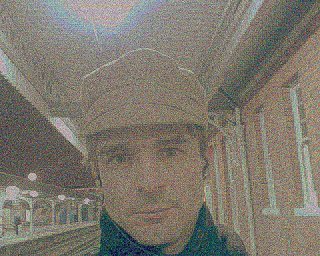For the last few days, I have been allowing my thoughts to settle a bit. The aim has been to allow my mind to untangle some of the ideas I have expressed on these pages, and to begin to shape them into a more systematic theory that can be put to good use in the study of political organisations. It’s not completely there, but I think I have something a bit more coherent.
So my theory, the basis of my methodology for the rest of my thesis, might be described as follows:
1. Power becomes apparent in action. Although it does not exclusively belong in individuals, it is expressed in the actions, interactions and relations between people and networks.
2. Institutions are ‘crystallisations’ of power’s effects. Series of action can congeal into practice and become regularised. Further, regularised practice can harden into procedure & process and forms the basis of social organisation. This development forms a context for future action, which may further congeal into new practices and processes. These ideas enable us to conceive of Foucauldian power as an anonymous and independent relations of force giving form to the rational organisation that Weber describes. Bureaucratic organisation, which becomes harder and harder to escape, and perhaps impossible to undo (with increasing layers of hardened practice), can be seen as coming into being through the development of practices and processes in this way.
3. Modes of organisation and forms of power have developed through concrete, specific and contingent events, rather than historical imperative or ontological necessity. My focus is on how the banal and the every-day, the chance event or the unforseen can be revealed as being of crucial importance in the development of modern forms of political organisation.
4. I do not make the assumption that the political organisation can itself explain power. We will learn more about both power and political institutions by averting our eyes from the formal structures of the latter and focus on the operation of the former, especially beneath the surface of the institutional crystallisations referred to. Even within these ossified structures micro-level relations, actions and interactions reinforce, challenge or cut-through rules and structures. It is my belief, for example, that organisations change practice and process formally only in response to developments that have already occurred ‘beneath the surface’. At times actual relations and practices may reinforce formalised rules and procedures, but at times they may also be fundamentally opposed to the latter. These are, however, aspects of organisational life that might be necessary to its functioning despite its formal appearance.
5. Also operative are the relations that run over the boundaries of the institution itself, reinforcing, altering or undermining existing practices, processes. They are part of the operation of power on the political representative and leader. For example, round-the-clock news media, the introduction of management and training techniques, interactive communications technology all bring about a greater degree of control of the detailed aspects of individual politicians behaviour: speech, dress, gesture, cultural ‘positioning’ etc. Such forms of discipline might be visible in the familiar repetition of performances in media interviews, or in codes and guidelines issued by parties to their members.
This is looking better I think. I am constantly concerned not to get led astray by tempting tangential arguments, especially ontological ones. Working with the material I am, this is hard to resist! More honing to do!
Sunday, July 09, 2006
Subscribe to:
Post Comments (Atom)

No comments:
Post a Comment